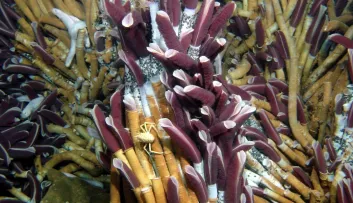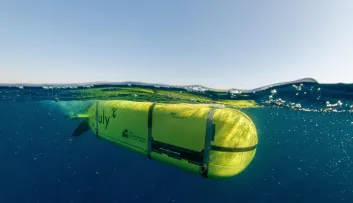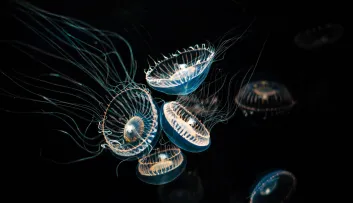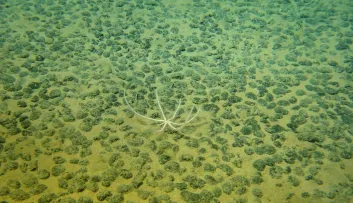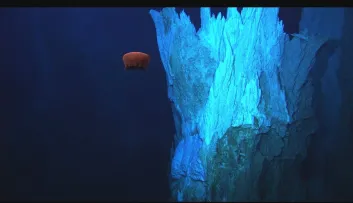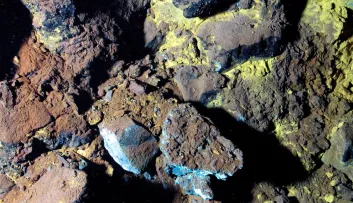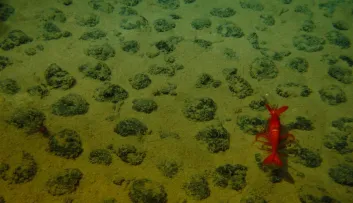Abyss International news 5mn
The deep seabed: its future is still uncertain!
The future of the deep seabed at stake at the ISA: moratorium or mining?

As the first round of negotiations within the International Seabed Authority (ISA) on preparing a mining code for the high seas drew to a close on the 29th of March 2024, the debate is heating up over whether or not to authorise deep seabed mining.
On this occasion, France spoke on behalf of 13 States, calling for a broad coalition of nations to oppose seabed mining.
In anticipation of the second part of the 29th session of the ISA, which will convene in Kingston, Jamaica, in July 2024, we take a look at the issues at stake at this crucial meeting for the future of the deep seabed.
A vital issue for humanity lies behind these negotiations
The deep seabed, or abyss, is the deepest part of the ocean, starting at a depth of 1,000 m. It makes up 75% of the volume of the oceans and 88% of the ocean floor. However, we know less about the ocean floor than we do about the surface of the Moon: only a quarter of its surface area has been mapped and less than 5% has been accurately explored.
Even if the abyss seems far removed from our daily lives, its role in the balance of the planet is crucial. In fact, by storing huge quantities of carbon and absorbing heat, the deep seabed regulates the climate and mitigates the effects of global warming.
Even in the most extreme conditions, the abyss is home to a vast array of species. To date, around 300,000 species have been identified in the ocean, but millions more remain to be discovered, many of which could be found on the deep seabed. Some are of interest to scientists because they could be the source of new medicines and innovative materials.
As well as extraordinary fauna, the deep seabed is also home to deposits of rare metals such as copper, nickel, cobalt and manganese, which are attracting growing interest from industry in many countries that are already seeking to exploit them.
Moratorium or mining? The ISA is confronted with a crucial decision
The deep seabed is located on the high seas in international waters and is administered by the ISA - International Seabed Authority - a United Nations agency established in 1994. It is responsible for regulating the exploration and mining of deep seabed mineral resources.
Next July, during the second part of this 29th session, the Member States will have to agree on the introduction of a mining code that would pave the way for the exploitation of mineral resources.
However, there are currently two opposing views:
- On one side, some States are backing mining for economic and strategic reasons, given the importance of securing supplies of critical resources, particularly for the energy transition.
- However, a number of States, companies, banks, fishing organisations, NGOs, scientists and the general public are opposed to this activity because of the risks it would entail for biodiversity and the global climate. The scientific community, as well as many international organisations and countries such as France, are calling for a moratorium on deep-sea mining until we know more about the environmental consequences of such practices.
Mining: an imminent threat to the abyss
While scientific exploration of the abyss is only just beginning to unveil its secrets, the prospect of authorising mining is a cause for concern.
The scientific community is in agreement that the ecological consequences of deep-sea mining could be disastrous for marine biodiversity and the ecological balance of the oceans.
Extracting minerals involves raking up the seabed, which irreparably destroys the fragile habitat of the species that live there. Furthermore, sediments raised by mining activities and carried by currents could pollute the water and disrupt the food chain at great distances from the mining site.
France on the front line against mining deep-seabed resources
France is one of the countries that firmly endorses the introduction of a moratorium to preserve the deep seabed. It is even the leader on this position, which has been asserted many times:
- In November 2022, at the COP27, President Emmanuel Macron declared that France was in favour of a ban on all deep seabed mining activities.
- On the 17th of January 2023, the French National Assembly voted by an absolute majority in favour of a moratorium on deep seabed mining, calling on the French government to block the adoption of any regulations on deep seabed mining by the ISA.
- In July 2023, during the previous ISA session, France called for a “precautionary pause” or moratorium to assess all the environmental consequences of mining.
A moratorium would buy time to gain a better understanding of the environmental risks of deep seabed mining.
Therefore, the decisions taken at the next session of the ISA in July will have a major impact on the future of the deep seabed.
Crédit photo : © Ifremer/MNHN - C/O Kanadeep 2019 - CCBY
We must join forces to protect the deep seabed!
Nausicaá endorses France’s position against deep-sea mining and will use every means at its disposal to raise awareness and mobilise as many people as possible in support of a moratorium.
